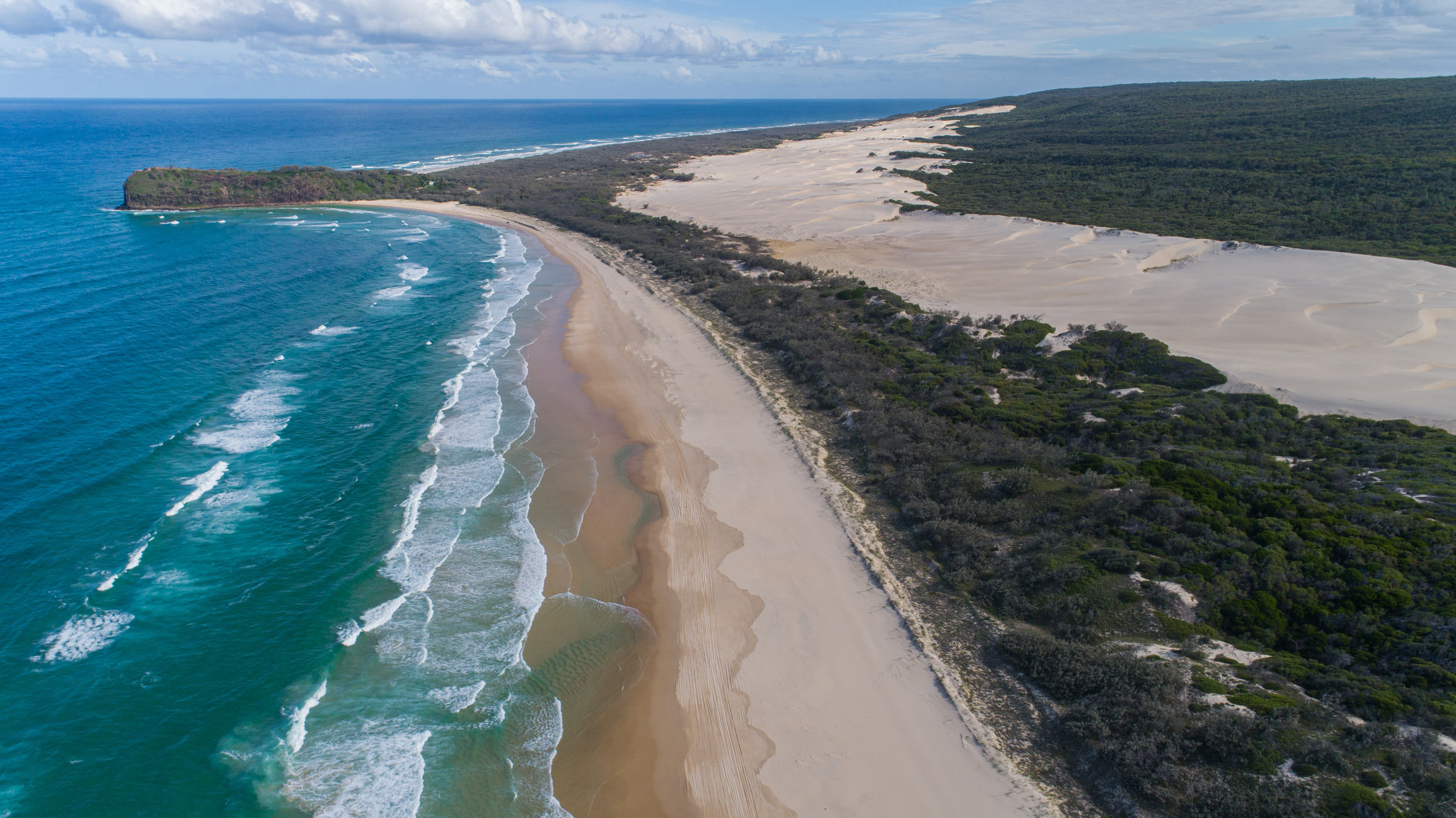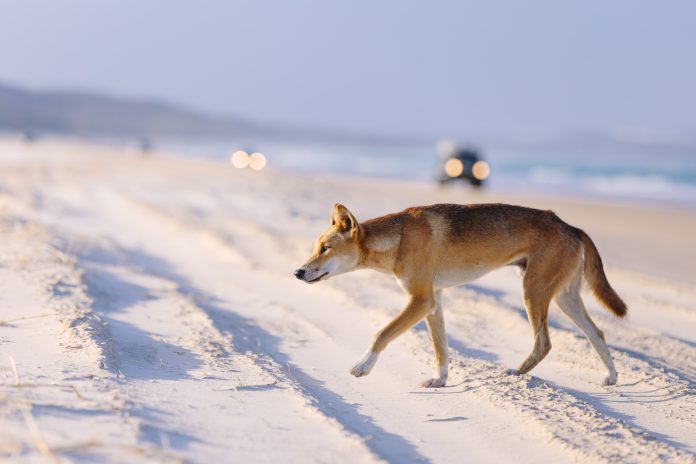An attack on a woman by a pack of dingoes has authorities weighing how to balance visitor safety with preserving ecology and natural wilderness on Queensland’s K’gari.
The 24-year-old was taken to hospital with numerous bites after being attacked by at least three dingoes while jogging on the beach on Monday.
The animals chased her into the water before two men in a four-wheel-drive rushed to her aid.
The attack is the latest of several recent concerning encounters between humans and dingoes, known locally as wongari.
This includes an eight-year-old boy being attacked on a beach earlier this month and a dingo dragging a 10-year-old boy under water in June.
Fraser Coast Regional Council mayor George Seymour believes there have been more attacks in the past two years than the previous decade at the tourist spot formerly known as Fraser Island.
“Something different is happening over the past two years, which is very, very concerning because it’s extremely terrifying to be attacked by wildlife,” he told ABC radio on Tuesday, mentioning both the frequency of interactions and behaviour of the animals.
Mr Seymour said it was too early to consider limiting visitor numbers and wanted to see more research into what is behind the dingoes’ behaviour.
He believed the state government was doing a good job of promoting safety.
“The state government has done everything it can, people get bored of (the) messaging – you hear it so much, about being dingo safe,” he said.
“There’s kilometres and kilometres of fencing and the attacks aren’t happening behind the fencing.”

The Queensland government committed to a series of “risk intervention actions” following a review of K’gari’s dingo management strategy announced in 2019.
The review was announced following three serious dingo interactions early that year.
Opposition Leader David Crisafulli is questioning whether the recommendations have been followed.
“So what’s happened since then, have the recommendations from that report been implemented? Are there enough rangers on the ground to do the job?” he told reporters.
“Or is it another report that was commissioned and then put on a shelf after relieving the pressure of the issues of the day?”
Rangers have previously attributed a rise in attacks to increasing numbers of people defying restrictions to feed and interact with the animals, which are estimated to number between 100 to 200 on the island.
“This creates animals who are not wary of people and they are brazenly going up to adults and children and having inappropriate interactions with them,” ranger Danielle Mansfield said after a recent attack.
Staying close to children, walking in groups and never feeding dingoes is among the advice given to visitors.
Rangers have also rejected calls to cull the dingo population.
“Culling in the situation on K’gari is not an option – culling for the sake of culling,” ranger-in-charge Linda Behrendorff said.
“Our job is to mitigate risk.
“You need to know the individuals, you need to work with the individual dingoes and you also need to work with the situation that those dingoes are in.”
Darren Blake from the Butchulla Aboriginal Corporation, which represents the traditional owners of K’gari, said it was important visitors understood that wongari were wild animals.
“They’re not puppy dogs, they’re wild apex predators, give them that respect,” he told ABC radio.
“My heart goes out to the young lady, and hopefully this hits home for everybody else.”
Do you have an opinion to share? Submit a Letter to the Editor at Sunshine Coast News via news@sunshinecoastnews.com.au. You must include your name and suburb.





